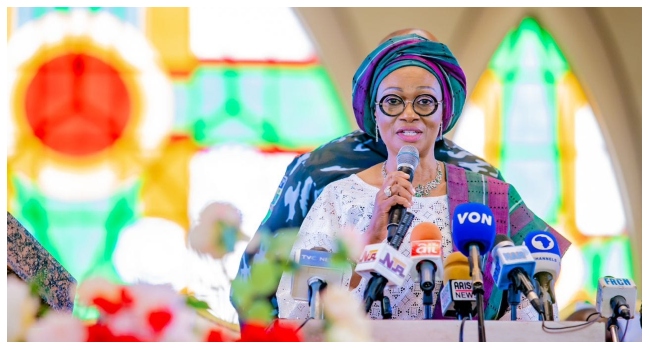In a recent development that has captured public attention, President Bola Tinubu publicly reprimanded his son, Seyi, for attending a Federal Executive Council (FEC) meeting, sparking a heated debate on the ethical implications of presidential privileges and the overbearing influence of the first family in Nigerian governance.
The incident in question occurred during a recent FEC meeting, where Tinubu expressed his disapproval of unauthorised individuals gaining access to the council chamber. Among those named was his 37-year-old son.
The president’s stern admonition and Seyi’s presence at such a high-level government meeting have raised important questions regarding the separation of personal and official boundaries within the presidency.
Seyi Tinubu’s questionable use of presidential privileges has not been an isolated incident. Just last month, he faced criticism for using one of the presidential jets to attend a private event in Kano State.
The use of state resources for personal matters has stirred controversy, especially in a country grappling with economic challenges and limited resources.
The purchase of a London property that once belonged to a fugitive, Kolawole Aluko, further cast a shadow over Seyi’s activities.
That particular transaction, occurring in 2017, was subject to scrutiny, as it involved an individual with questionable legal status. The fact that it was related to the president’s son only intensified the spotlight on the matter.

While Seyi holds the position of CEO at Loatsad Promomedia Ltd, an outdoor advertising company in Lagos, questions arise about his qualifications and capacity to contribute to high-level executive decision-making. It is essential to ensure that those participating in the executive branch are qualified and possess expertise relevant to their roles.
These actions and instances have intensified the growing perception of a presidential family wielding excessive influence in the governance of Nigeria.
From the president’s wife, Remi Tinubu, who recently came under scrutiny due to the proposed allocation of N1.5 billion for vehicles for her office during a time of economic hardship, to Seyi Tinubu’s alleged overstepping of bounds, the issue has become a focal point of public discourse.

The issue of presidential family members enjoying privileges that extend beyond the typical purview of their roles is not unique to this administration. Nigeria has a long history of first family members exerting undue influence on the nation’s governance.
In 2020, former President Muhammadu Buhari’s daughter, Aisha, flew in a presidential jet to Bauchi on a “study tour” of Bauchi Emirate as part of her fieldwork for her Master’s programme in Photography at a UK university.
The presidency through a spokesperson, Garba Shehu, defended the action, saying Aisha, like any other member of the president’s immediate family, is entitled to the use of the presidential jet.
Although the Nigerian constitution makes no clear rule on such use of the presidential jet, the issue underscores the challenges associated with preserving the boundaries between the personal interests of the first family and the public obligations of high public office.
In the past, first ladies have often been at the forefront of influencing government policy and decisions. Their offices have been known to command significant budgets and resources, despite not having constitutionally defined roles.
This practice has also raised questions about the appropriateness of such allocations, especially during times of economic hardship when the funds could be redirected towards pressing national needs.
The current scenario involving Seyi Tinubu attending a FEC meeting and enjoying access to presidential privileges amplifies the growing perception of a presidential family wielding excessive influence in the governance of Nigeria. It serves as a stark reminder of the need to maintain a clear separation between personal interests and the obligations of high public office, a separation that is essential for the integrity of governance.





















